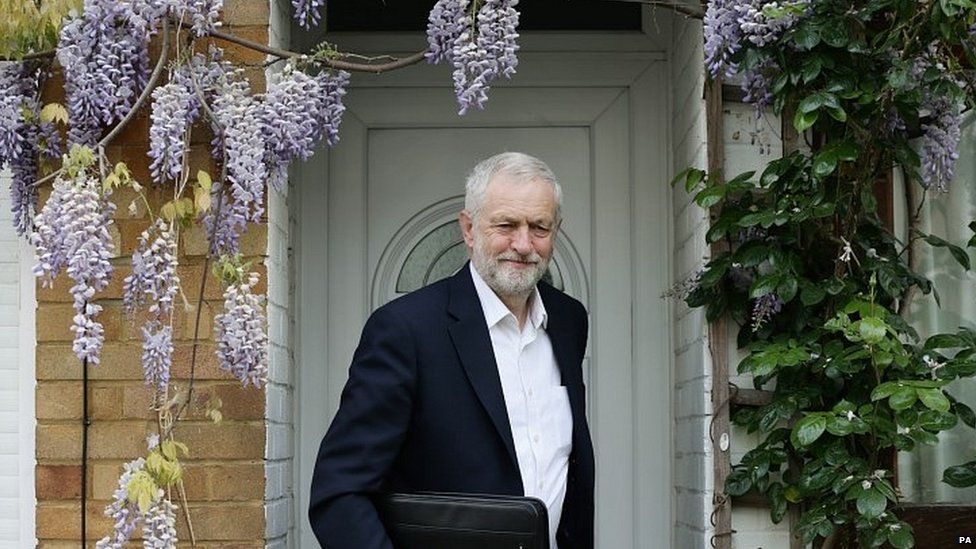General election 2017: Corbyn 'won't do TV debates without PM'
- Published

Jeremy Corbyn has said he will not take part in any head-to-head TV election debates without Theresa May.
Labour's leader said the only debate he wanted was one between the "two people who could form the next government".
In 2015, Ed Miliband took part in a debate against four other opposition leaders after David Cameron opted out.
Liberal Democrat leader Tim Farron said both Mr Corbyn and Mrs May - who has also ruled out head-to-head appearances - were "running scared" of voters.
Broadcasters have said they are keen on staging a series of election debates, which drew big audiences in 2010 and 2015.
Earlier this month, ITV announced plans for a leaders' debate but did not say who would take part.
In 2010, Gordon Brown, David Cameron and Nick Clegg went head-to-head in three encounters on ITV, Sky and the BBC.
In 2015, there was a single debate between all the main British party leaders, watched by an average audience of 7.7 million people. There was a separate debate between the Labour, SNP, Green Party, UKIP and Plaid Cymru leaders in the absence of the Conservative prime minister and his Lib Dem deputy Mr Clegg.
A spokesman for Mr Corbyn said he would not take part in a similar format this time around.
"The British people have the right to see a head-to-head debate between the only two people who could form the next government," he said. "The prime minister's refusal is a sign of weakness, not of strength."
In response, Mr Farron said the Labour leader should face his opponents and defend his policies.
"Given he has been absent since the day he was elected as leader of the opposition, it is no surprise that he is choosing to be absent now," he said.
"The broadcasters are going to have to dust off two empty chairs, the debates must go ahead."
In 2015, the BBC also broadcast a special edition of Question Time in which the Conservative, Labour and Lib Dem leaders were questioned by the same studio audience. It drew a peak audience of 4.3 million people.
- Published22 April 2017
- Published19 April 2017